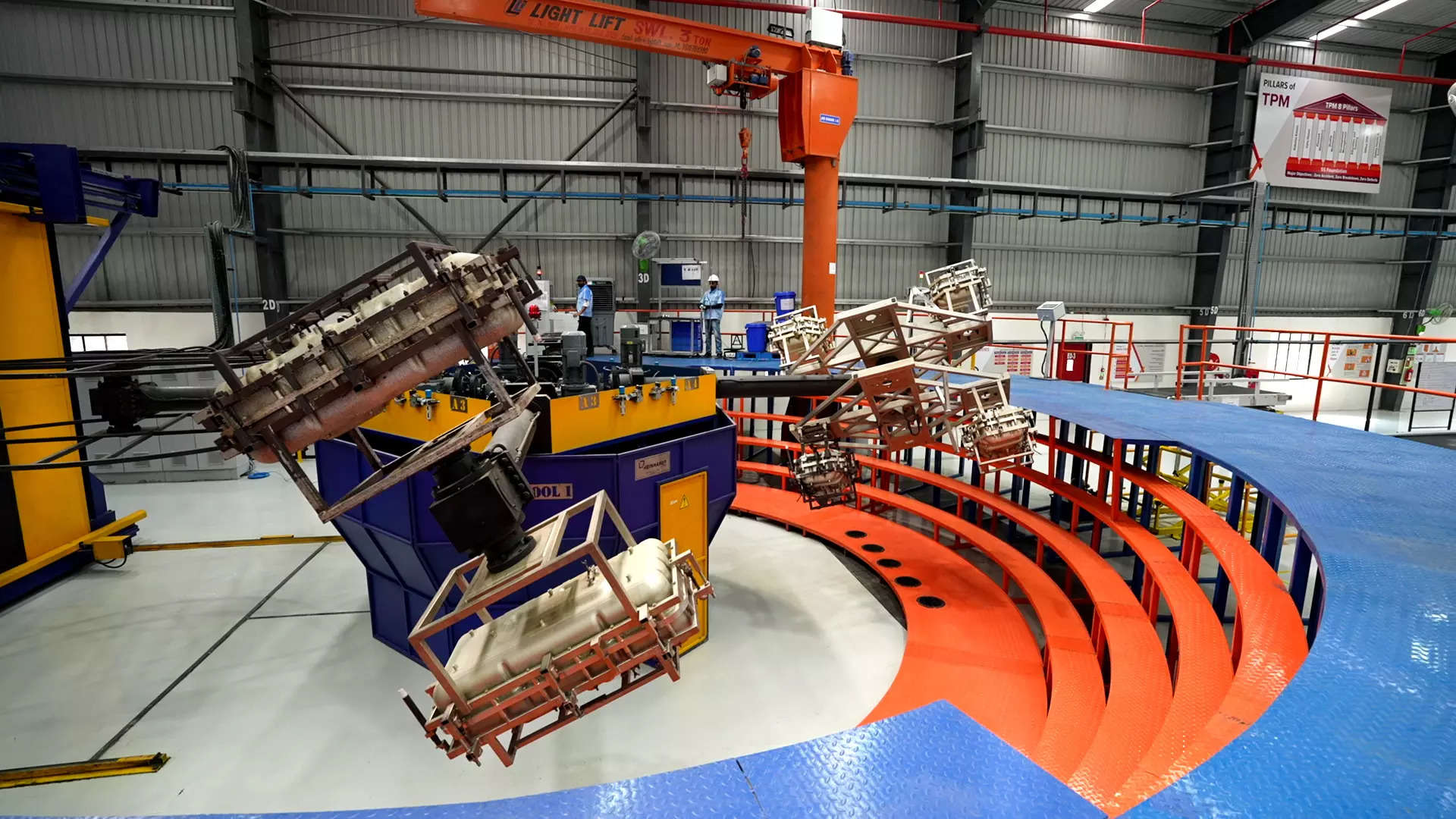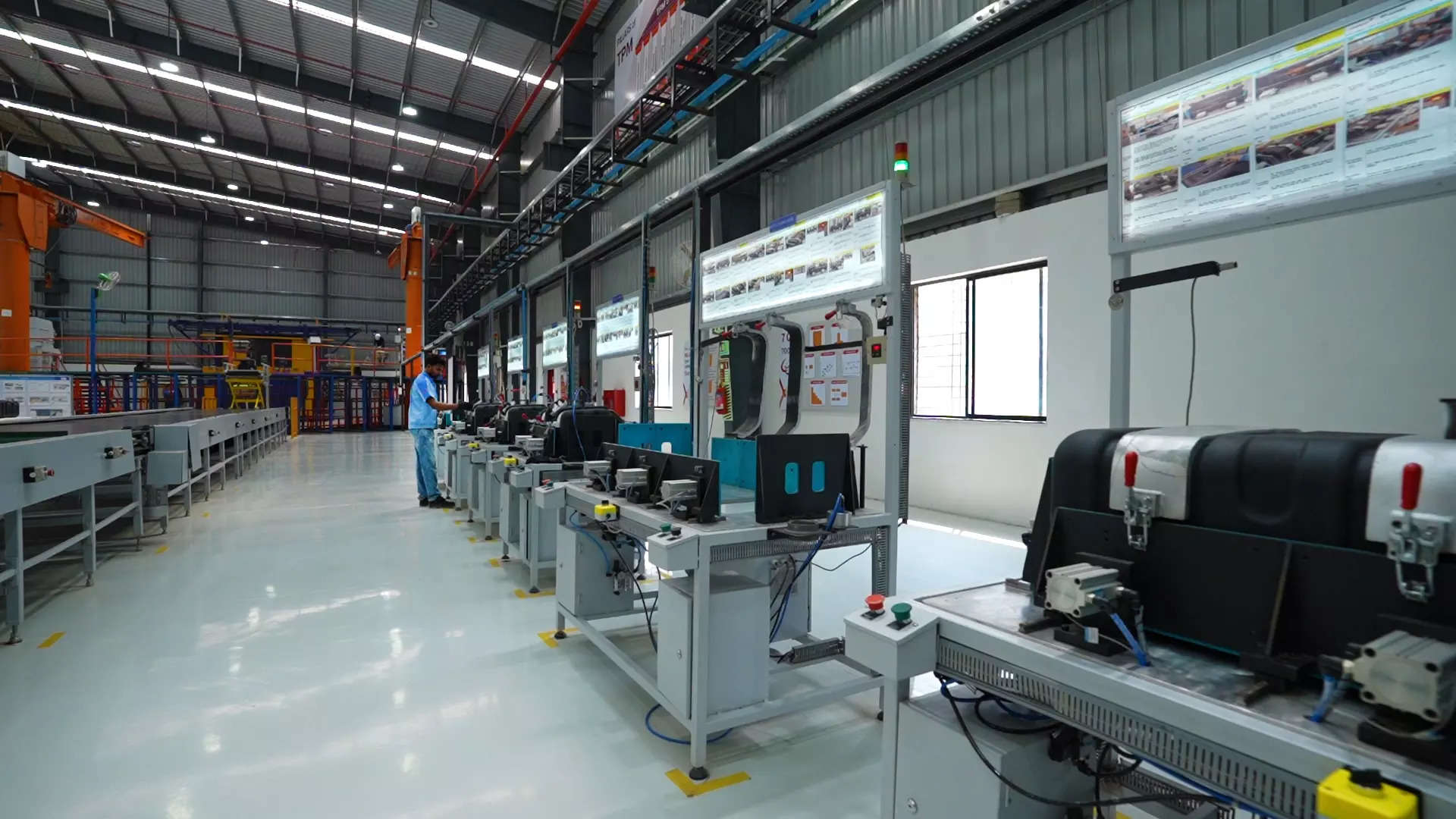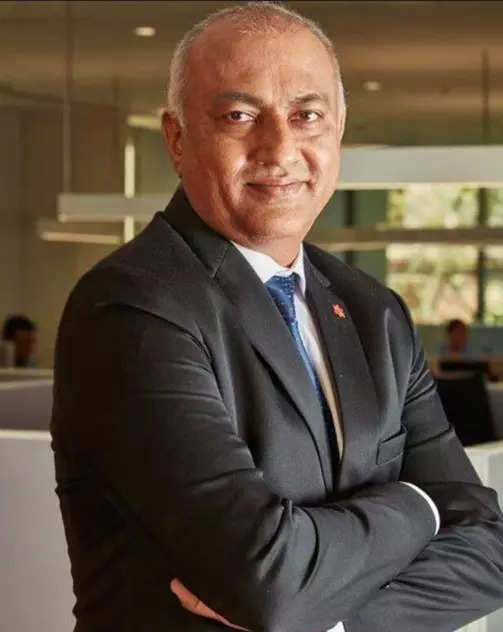
New Delhi: It was a little over a year ago when Lumax Cornaglia Auto Technologies (LCAT) bagged an order for air intake auto systems from Toyota Motor Corporation.
“These are made through the blow moulding process and we are the only company in India which has the technology to do this,” Vikas Marwah, CEO, Lumax Auto Technologies, told ETAuto in a recent interview.
More importantly, Toyota also placed a simultaneous order for these air intake systems for its India business which meant that it was in sync with the ASEAN mandate. From a supplier’s point of view, this was testimony to the quality of its products for overseas markets and more so when it was being certified by the world’s top carmaker.
“The Toyota sign-up for exports was a big step forward,” said the CEO. However, this was not the first time that LCAT had seen its products going global. It had been doing this for over a decade with Volkswagen and Skoda. Its air filters are fitted in these carmakers’ models across North America and Europe. Back home in India, LCAT also meets the needs of Mahindra & Mahindra, Tata Motors, MG Motor India etc.
Marwah said it was now important for the entity to pull out all the stops and grow its business rapidly. The joint venture recently inaugurated a plant at Chakan near Pune which will make emission products and mark a significant expansion from its earlier footprint.
BS VI and the lockdown
“We started as an injection moulding company in 2007 and decided to go all out as a fully integrated moulding player,” he continued. Today, there is a “fully qualified” moulding division in place that rolled out its locally developed urea tank in April 2020. This coincided with the onset of Bharat Stage VI emission norms as well as the marathon lockdown that was imposed nationwide as part of the Centre’s efforts to combat the pandemic.
More recently, the joint venture kickstarted its rotational moulding division “which is important for the migration from the metal to plastic tank”. This is important not just because of the anticorrosion spinoffs but also due to the plastic tank’s ability to manage various fuels compared to its metal sibling.

This transition is already happening in the US and Marwah expects urea tanks and rotational moulding to contribute to 40% of LCAT’s business while giving it the added advantage of being a niche player. According to him, rotational moulding has applications going beyond automotive to water tanks, modular plastic furniture “and whatever else on a massive scale”.
The company is also in a happy place right now in the plastic fuel tanks arena. “Light weighting is top priority for the partners and these advanced plastics contribute to the task well,” said Marwah. Work is also underway on noise control where plastic compressors help in this cause to ensure more cabin comfort.
Focus on plastics
Cornaglia has had “a great legacy” going back to 1916 with sheet metal but the focus has changed over the years now to plastics/advanced plastics. The Italian entity, which has plants across the world, expanded capacity by 60% in 2023 and is keen to be in the same league as Faurecia, Roslin and the like in the advanced plastics space.
Cornaglia meets the needs of a diverse range of brands right from Ferrari, Ducati and Renault to Stellantis and Jaguar Land Rover. Its commercial vehicle clients include Iveco and Volvo. Going forward, if India can make out a strong case for low- cost manufacturing, more work can be diverted here for global supplies of air filters and air intake systems.
Interestingly, till about three years ago, more than 50% of design and development support for LCAT came from Cornaglia of Italy. Today, the company has transferred the technical knowhow to India and also helped set up an R&D base. “We are now making and exporting from India,” said Marwah.
However, the first design approval for rotational moulding will come from Cornaglia since it owns the technology. It is quite likely that the future will see LCAT take the development moulds and localise them here for mass production. Incidentally, its urea tank falls under the Centre’s PLI scheme and has reached a local content of 95%.
EV frontier
As for the emerging challenge of electric vehicles, Marwah said the partnership was ready with new product offerings in this space. “We may not be aggressively present in critical EV products like batteries and controllers but our take is to watch the market carefully,” he explained.
Two-wheelers will electrify quickly and once the ICE powertrain “gives way to electric” with fewer parts, there is no way Lumax will contemplate any contract manufacturing of batteries. “It does not make sense since there is no value addition. LCVs, ICVs and last mobility solutions will offer opportunities and our e-shifters, connected vehicle systems and sensors will have a larger role,” said Marwah.
For two-wheelers, the company is developing an application related to the body control module. It is also targeting a specific space comprising sensors, switches and voltage management for hybrids, EVs etc.
LCAT is also well positioned to make the most in this space, continued Marwah. For instance, if hydrogen tanks gain popularity in the future, its plastic products will be a better option than metal when it comes to compatibility. Mechatronics will play a big role too going forward even while there are challenges to reckon with like the resource crunch in software.
“Our JV partners would like to outsource their software needs to the Indian bench which means electronics and software will need more talent. Skills will change with greater automation and the southern and western belts of the country will come in handy to meet this task,” said Marwah.
Core pillars
LCAT is part of the larger Lumax Auto Technologies fold which has four core pillars. The first is the legacy business of metallic and fabrication where no alliances are needed now and it will grow organically. Mechatronics is the second pillar that houses telematics, connected vehicles, switches and sensors with the Alps Alpine of Japan. While Alpine is the world leader in infotainment, Alps is especially strong in switches and sensors.
Advanced plastics is the third vertical where LCAT has gone beyond traditional moulding, and the fourth is transmission where future evolution will see more e-shifters produced.
“We have already supplied to Switch Mobility and are developing more such e-shifters for commercial vehicle and passenger carmakers,” said Marwah. Jopp of Germany (an ally since 2019) is playing a big role in the transmission products.
Advanced plastics and mechatronics will see more alliances or acquisitions (as in the 75% buyout of IAC India in February 2023) and Lumax Auto Technologies is keen on emerging as a “good systems solutions provider” in mechatronics, telematics, switches and sensors.
Some joint ventures signed before Covid will now come to fruition over the next 24 months.
Lumax already has 38 facilities in India with three more scheduled to be added this fiscal. These will be brownfield expansions happening in Gujarat and Maharashtra. Beyond this, it has six design and engineering centres in India, one in the Czech Republic for lighting and electronics, and one in Taiwan.


















